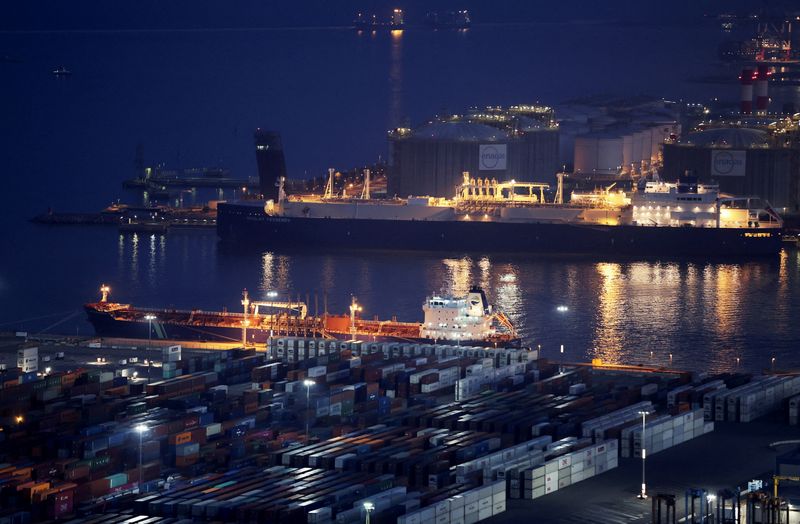By Darya Korsunskaya
LONDON (Reuters) - Russia's liquefied natural gas (LNG) exports could stagnate in the next four years under the two less-rosy of three Economy Ministry scenarios - a sign that Western sanctions might be cramping Moscow's energy plans.
Under the ministry's "conservative" and "stress" scenarios, the latter not made public, LNG output would stagnate at 38.6 million metric tons each year in 2025-2027, according to a document seen by Reuters.
The baseline scenario, the most optimistic, calls for a rise to 56.6 million tons in 2027 from 33.3 million in 2023.
Russia says it wants to secure 20% of the global LNG market by 2030-2035, compared to around 8% at present, thanks to new plants predominantly located in the Arctic.
However, myriad Western sanctions present obstacles, not least to a new Arctic LNG 2 project that is yet to export a cargo after tentatively starting production in December.
The project is due to become one of Russia's largest such plants with eventual annual output of 19.8 million metric tons of LNG and 1.6 million tons of stable gas condensate from three production units, or trains.
Sources have said the conversion of methane into liquid at minus 163 degrees Celsius (minus 261 Fahrenheit) has now been suspended at the plant.

The Kremlin-controlled energy giant Gazprom (MCX:GAZP) also delayed the start-up of a huge gas complex at the Baltic port of Ust-Luga since the withdrawal of Western companies such as Linde after the start of Russia's conflict with Ukraine in February 2022.
Russia currently has two large-scale LNG plants: the Novatek-led Yamal LNG, which produced around 20 million tons last year, and Gazprom's Sakhalin-2, with an output of more than 10 million tons last year.